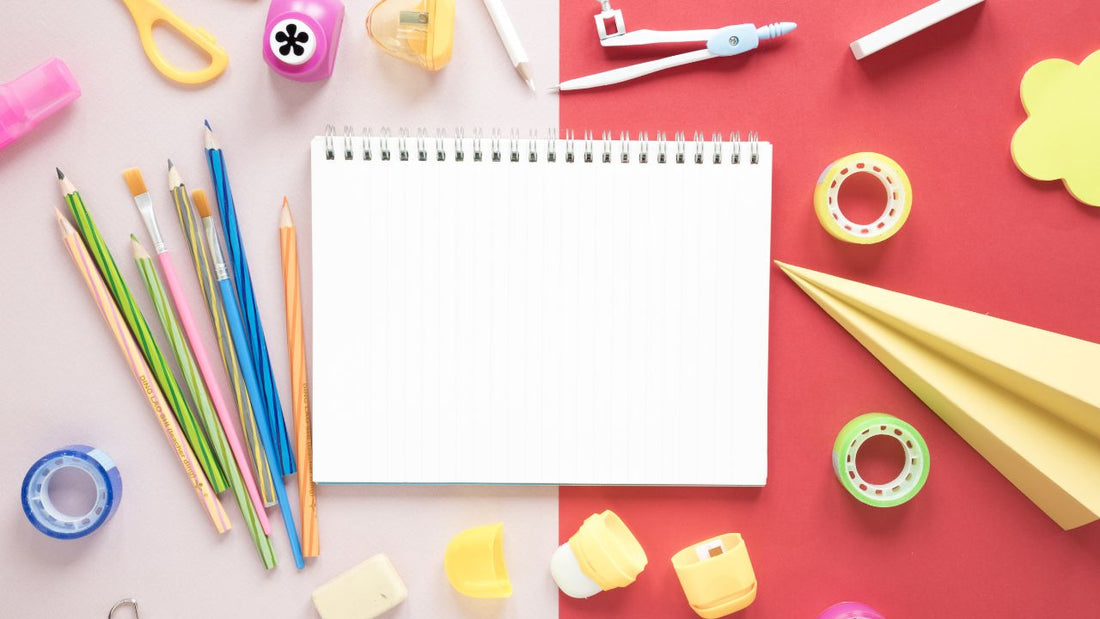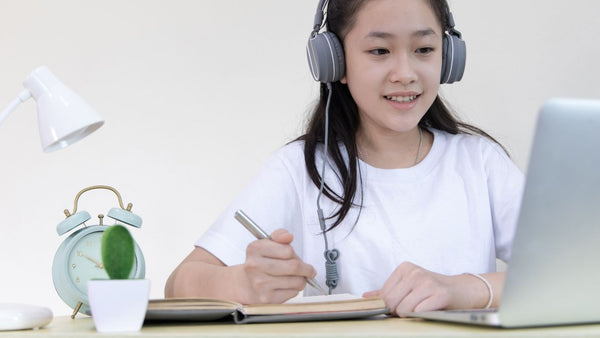
16 Creative Uses for Notebooks
Richard O'ConnorShare
Despite living in an increasingly digital world, paper notebooks remain hugely popular. Most of us have at least one empty notebook lying around. If you're obsessed with notebooks (like I am), you've probably got a cupboard full of them, just waiting to be used!
But the question is, what on earth will you do with all these lovely Notebooks? Well, here are 16 creative uses for your unused notebooks.
Use A Notebook To Record Your Dreams
Dreams can feel so real that most of us are completely unaware we're dreaming until we wake up. Even the most surreal of dreams can fool us into thinking we're living in reality. But dreams can also be a source of incredible things, from art to music and even technology. Did you know that Google, DNA, the Periodic Table and Einstein's theory of relativity were all inspired by dreams? Who knows, recording your dreams in a notebook could lead to the next big breakthrough.
Record Your Weight Loss or Fitness Journey
Whether you're trying to lose weight, gain muscle or get fitter, keeping motivated can be the biggest challenge. A great way to overcome this is by keeping a journal of your progress.
Whatever your goal, take measurements at the start of your journey (weight, waistline, strength, fitness, etc.), and then take new measurements at regular intervals. It can be hard to see progress in the mirror, but you may be pleasantly surprised when tracking your progress in a notebook, motivating you to keep going!

Use Your Notebook As A Habit Tracker
Similarly to weight loss and fitness, kicking a habit can also be hard to keep up with. A prime example is quitting smoking, something a million people in the UK have done since the COVID Pandemic. By keeping a journal of how many cigarettes you smoke every day, it can be easier to set yourself a target for the following day and track your progress over time.
You can also use your habit tracking notebook for new habits, such as eating a particular type of food, drinking more water or switching off your phone before bed.
A Notebook to Track Your Hobbies
We've covered a few ways a notebook can help you cut things out of your life, but you can also use them to keep track of the things you love. Whatever you do with your free time, chances are a notebook can make the experience even better. Some hobbies, such as bird or train watching, would be almost impossible without a notebook to hand. Gardening journals are also becoming more popular, as are journals to help you learn a musical instrument of a new language...
Use a Notebook To Help You Learn A Language

Learning a new language has always been a fun and popular pastime. And in 2020, 30 million people in America started learning a new language during the pandemic. There are many great apps, such as Duolingo, but sometimes you just can't beat a good old-fashioned notebook to help you develop your newfound language skills. Try writing new words and their meanings, with separate pages for things such as greetings, foods and places so you can quickly refer back when you need a reminder.
Keep a Travel Diary
Once you've mastered your new language - or can at least ask for directions - you'll no doubt be keen to travel and start putting your new linguistic talents to use. Pictures are a great way to capture the sights and scenery, but the best way to capture your feelings and emotions during your trip is by writing them down in your travel diary. Everyone has their way of formatting these, so there's no right or wrong way. Just make sure to keep your notebook by your side to capture your thoughts as they happen.
Use your Notebook as a Sketchbook
If words aren't your thing, give drawing a go instead. You don't have to be a gifted artist to start sketching; the important thing is to enjoy drawing whatever you want. Sketchbooks can be an excellent tool for art lovers as they're far more portable than a canvas, making them practical to sketch things found on their travels to work on in more detail when back at the studio. For others, a sketchbook could be used to draw things from imagination or practise still-life by drawing anything you can see.
Make a Recipe Book
If you're anything like me, you've probably got a shelf full of recipe books. I can normally find a couple of great recipes in each of them, but I can never remember which one I need when I crave a particular dish! This is why writing your favourite recipes down in a notebook is a great idea! This way, you can write your own recipe book with all your personal favourites, not to mention grandma's secret recipe for the perfect cake.
Write Down a Routine or Rota
Unfortunately, not everything we do in life can be fun, but those chores can be made much easier by keeping a rota. Sure, you could use a whiteboard or sheets of paper, but a notebook is far less likely to go missing. Moreover, when you write things down by hand, they are more likely to be ingrained into your memory than typing them on your computer. Your notebook doesn't have to be limited to chores either, as any new routine, such as your new commute if you use public transport, or making your own instruction manual for something are also great ideas.
Use a Notebook For Budgeting
There are many great applications and digital tools that can help you plan and manage your finances. But not everyone knows how to use them, and a paper notebook is more likely to be ready at hand, making them a popular choice even in this digital age.
Another good reason to use your notebook for budgeting is that research has shown that writing things down by hand is quicker and more likely to be remembered than using a mobile device.
Make a Bullet Journal
What is a Bullet Journal? I hear you ask. The simplest way to describe it is a journal that uses graphics and stickers rather than just written notes. Sure, you could make a standard bullet list of things you need to do or a goal you're working to achieve, but turning it into a graphic becomes more engaging and personal. For example, if you're using a journal to help you learn German, drawing what the word means - such as a Dog next to the word Hund - can make it more fun.
Keep a Daily List of Things You Are Thankful For
Some days, it doesn't seem to take much for life to get us down. It's easy to forget about all the great things that exist in our lives that we take for granted. If you feel like this often, making a list of things you are thankful for can be an excellent way to remind yourself that whilst not every day is good, there is good to be found in every day. Whether it's a roof over your head, good health, a loving family or the return of your favourite show on Netflix, whatever you are genuinely thankful for in your life, it doesn't hurt to remind yourself every so often.
Make a Worry Journal
Did you know that around 8 million people in the UK suffer from anxiety? There's a good chance that you or someone you know will be affected by anxiety at some point in your life. Anxiety can often be irrational because sufferers often worry about things that haven't happened yet, so writing down what's on your mind can be a good way to put it to ease. If you feel overwhelmed by your thoughts, try writing them down in a worry journal to help you make sense of them.
Use your Notebook to make a Bucket List.
We all have dreams of achieving great things. For some, it's running a marathon on every continent or conquering mount Everest. For others, it can be simply learning an instrument or going on a cruise. Whatever your dreams, the first step to making them a reality is to write them down. But don't just list things you'd like to do at some undefined time in your life; put a date next to each item on your bucket list and start working towards your goals today.
Make a Vision Journal
Whilst a bucket list is ideal for those big, once-in-a-lifetime dreams, a vision journal focuses more on something long-term. One example is to work out a vision for your business or a community project you're working on. Writing your vision down can help fuel your creative process, assess your strengths and weaknesses, and make you accountable. Keep your vision journal as a reference to track the progress towards your vision over time to ensure life doesn't distract you from your ambitions.
Or, Keep a Diary
If in doubt, a personal diary is an excellent use for any notebook or journal. A Statista survey found that over 20% of children and young people keep a diary at least once a month. Diary writing can help to improve literacy skills and promote creativity. It can also be a way to express emotions and work through problems. In addition, diaries can provide a valuable record of personal thoughts and experiences. Whatever reason for keeping your diary, it can be a great way to use a spare notebook.
